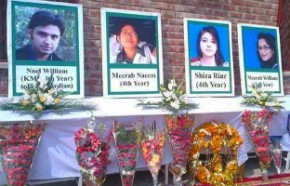Persecuted in Pakistan: A Christian educator survives a beating

The headline of an Anglican News Service article read, “Church of Pakistan college principal beaten.”
I am that principal.
Before the attack there were other acts of intimidation and violence as the government of Khyber Pakhtunkhwa, a Pakistani province known for religious extremism, intensified its attempt to seize control of the only college still nominally under the management of the Church of Pakistan. Religious freedom is at stake, for the Pakistan constitution provides that all religious groups have the right to manage their own institutions.



